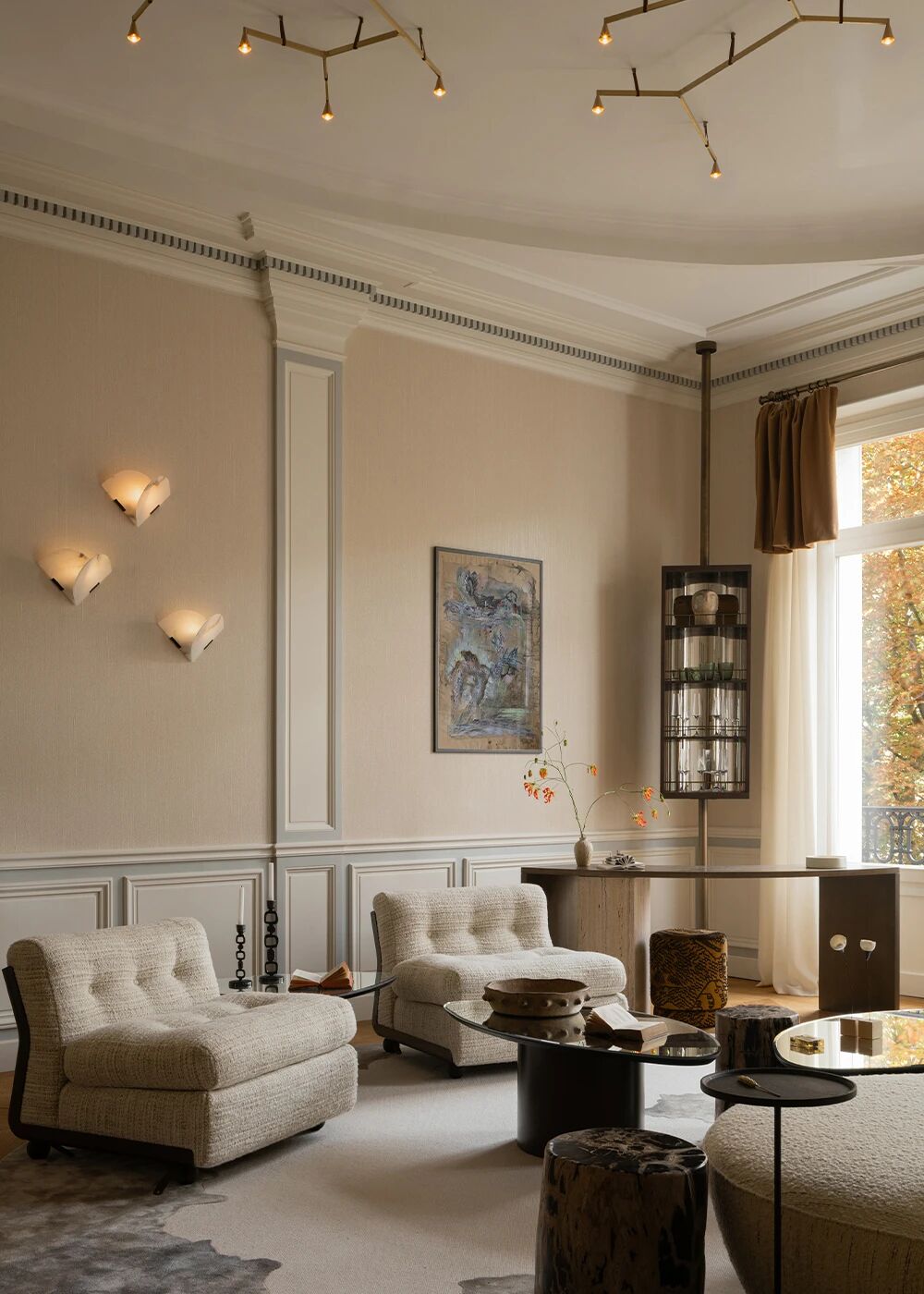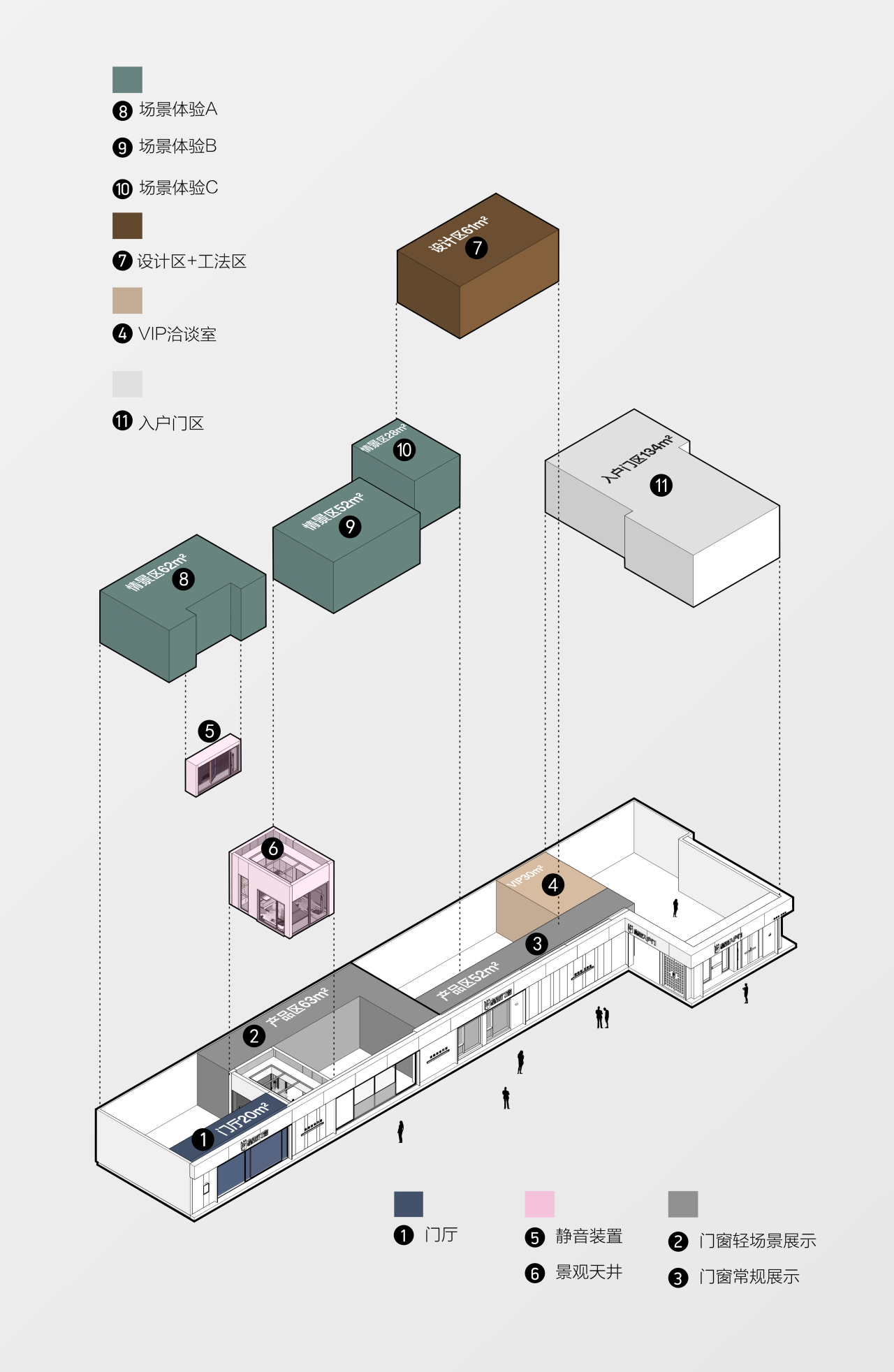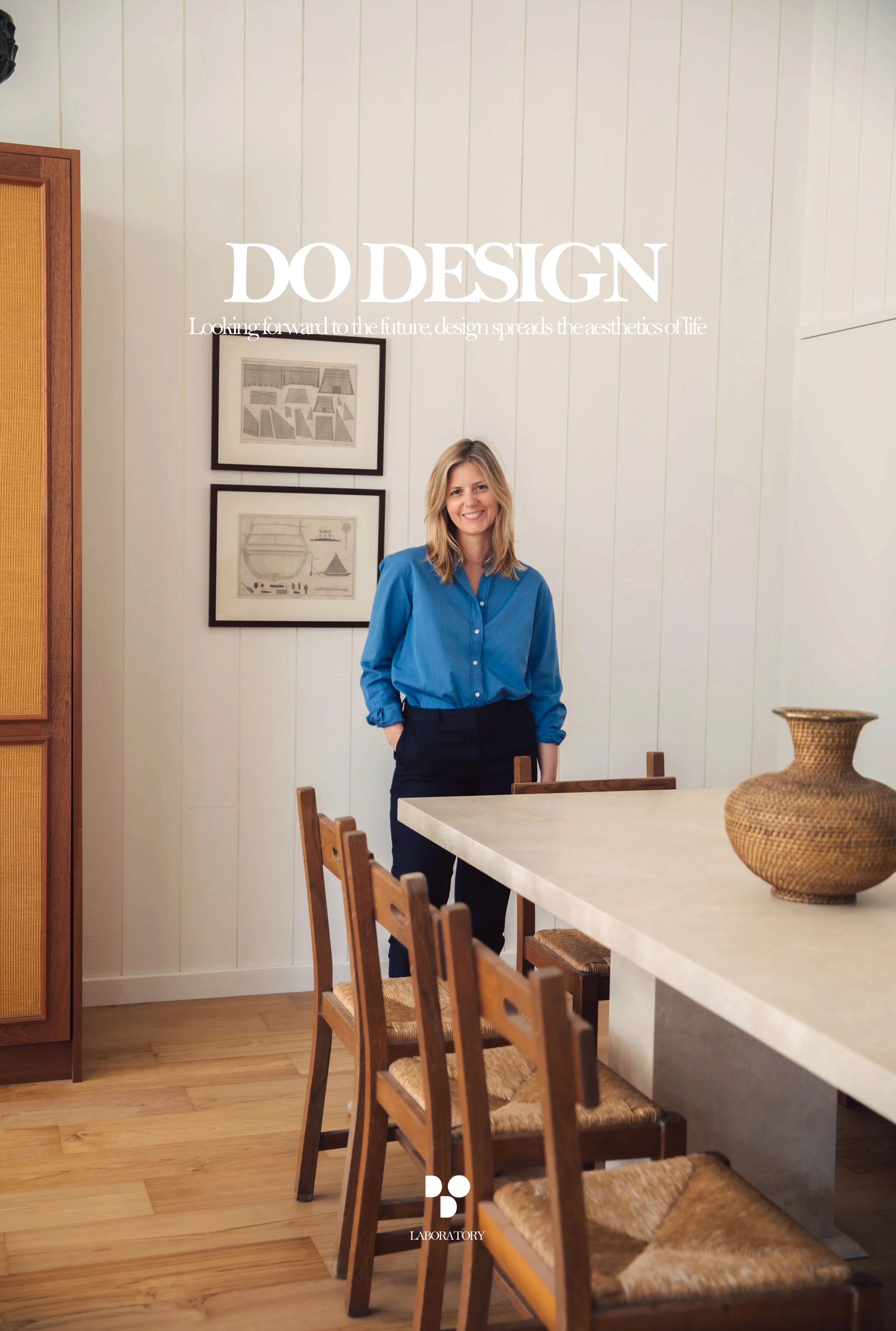Okada Marshall House by D’Arcy Jones Architecture
2018-04-03 13:38
Architects: D’Arcy Jones Architecture Project: Okada Marshall House Location: East Sooke, British Columbia, Canada Size 2470 SF Photographer: Courtesy of D’Arcy Jones Architecture
建筑师:D‘Arcy Jones建筑项目:Okada Marshall House地点:加拿大不列颠哥伦比亚省东苏克2470 SF摄影师:D’Arcy Jones建筑公司提供
This craggy H-shaped house wraps around itself to contain two inner courtyards. All of the house’s windows and doors point toward ancient moss-covered rocks or the Pacific Ocean, creating lively contrasts as one moves through the house. Low-slung and modest, the house has a constant parapet height, to emphasize and visually contain the undulating concrete and courtyard screen that is scribed to the existing contours of the rock. Externally the form of the house is quiet and solid, belying an inner complexity and spatial variety in plan. The Okada Marshall House is comprehensive tribute to wood: for its efficient and ambitious engineered wood structure, for its delicate yet robust courtyard screening, and for its hard-wearing traditional board and batten cladding that will last hundreds of years. The absolute minimum number of 2×6 light-wood frame shear walls were sculpted and carved to allow for large window and doors in all spaces. Soaring engineered LVL beams (laminated veneer lumber) were pushed to their limit, spanning more than 30’ without posts to hold up an outdoor dining roof, to define natural outdoor courtyard areas, and to make a typically generic parking area into a well-composed and inviting outdoor “room”.
这座摇摇欲坠的H形房屋环绕着自己,里面有两个庭院。房子的所有门窗都指向古老的苔藓覆盖的岩石或太平洋,当一个人穿过房子时,形成了生动的对比。低吊装和谦虚,房子有一个恒定的栏杆高度,强调和视觉上包含起伏的混凝土和庭院屏幕,这是划线的岩石现有轮廓。在外部,房子的形式是安静和坚实的,掩盖了一个内在的复杂性和空间多样性的计划。冈田马歇尔大厦是对木材的全面赞颂:它高效而雄心勃勃的木结构,它精致但坚固的庭院屏蔽,以及它耐穿的传统板和板条覆层,将持续数百年。绝对最小数量的2×6轻木框架剪力墙被雕刻和雕刻,以允许大的窗口和门在所有的空间。高耸的工程lvl横梁(层压板木料)被推到了极限,超过30英尺,没有柱子支撑户外餐厅屋顶,定义自然室外庭院区域,并使一个典型的通用停车场成为一个良好的组成和吸引人的室外“房间”。
The Okada Marshall House is a test-case for the owner’s Shou-sugi ban wood supply company, which needs no maintenance and will never rot. The owners charred the wood themselves, to learn this ancient Japanese craft. This siding is well-suited to the dampest regions of British Columbia which are similar to Japan. The Okada Marshall House is on the edge of a new development, invisible from anywhere inside the house or its courtyards. Assuming a potential loss of privacy over time, the central courtyard is screened to block out the surrounding area, while letting in linear sunlight that animates the house and courtyard with its textured patterns.
OkadaMarshallHouse是业主寿司禁令木材供应公司的一个测试案例,它不需要维护,也不会腐烂。主人自己烧焦木头,学习这古老的日本工艺。这个壁板非常适合不列颠哥伦比亚省与日本相似的最潮湿的地区。OkadaMarshallHouse位于新开发项目的边缘,在房子或庭院内的任何地方都是看不见的。假设随着时间的推移,可能会失去隐私,中央庭院会被屏蔽,以遮挡周围的区域,同时让光线照射房子和庭院,使其具有纹理图案的动感。
The clients asked for a house without stairs. The internal privacy that the client valued in their previous multi-storey house inspired this house’s plan. By pulling the house’s day-time spaces apart with stretched hallways, acoustic separation for a quiet home office is created. Elongated hallways emphasize the house’s sense of expansiveness, within a compact footprint. As a critique of over-scaled completely open plans, this house explores the value and delight in movement with focal points and compressed proportions.
客户要求买一栋没有楼梯的房子。客户在以前的多层住宅中重视的内部隐私激励了这所房子的计划。通过将房屋的日间空间与延伸的走廊分开,为安静的家庭办公室创造了隔音。拉长的走廊强调房子的膨胀感,在一个紧凑的脚印。作为对过度完全开放计划的批判,这所房子探索了运动中的价值和乐趣,重点和压缩比例。
The seemingly random angles of the plan result from fitting all of the house’s internal spaces to the topography of the site. The winds off the Pacific Ocean on Vancouver Island’s west coast are constant, during every day of every season. Like a wagon caravan encircling a fire for security and warmth, the shape of the house passively creates an inner microclimate. The expansive view is still clearly seen through the back to back glass, mimicking how cupped hands shield one’s eyes from glare and focus the eyes on the distance. In the central living area an al fresco dining table is wrapped with a dark antiglare door liner, similar to the ones on BC Ferries’ wheelhouses that allow softened marine reflection.
平面图表面上的随机角度是由于将房子的所有内部空间与场地的地形相匹配而产生的。在每个季节的每一天,温哥华岛西海岸的太平洋风都是持续的。就像一辆大篷车为了安全和温暖而包围着火一样,房子的形状被动地创造了一种内部的小气候。透过背对背的玻璃,仍然可以清晰地看到这片广阔的景色,就像一只手如何遮住眼睛不受眩光的影响,并将目光聚焦在远处。在中央生活区,一张全新的壁画餐桌上裹着一层深色的防眩光门内衬,类似于公元前轮渡轮房里允许柔和的海洋反射的那种。
A black-tiled Japanese bath has its own composed view. Even in low light on a stormy day, the outdoors will be brighter than the dark tiled surround, creating a mood of optimism.
一个黑色瓷砖的日本浴有它自己的冷静的观点。即使在风雨交加的日子里,室外也会比漆黑的瓦片周围更明亮,创造出一种乐观的气氛。
The house’s white interior acts as a light-bouncing foil to its brown-black exterior. Sculpted openings, ledges and niches abstract the site’s fractured volcanic rock. During the summer, weather inversions create fog until midday, so the strongly defined courtyard and arms of the house were toned and proportioned with mock-ups on site to ensure visibility in the densest fog. The sensations of dislocation and loneliness that happen on the west coast are transformed into feelings of comfort and security.
这座房子的白色内饰就像一个反射光的金属箔到它的棕色和黑色的外表上。雕刻的洞口、石阶和壁龛抽象化了该遗址破碎的火山岩。在夏天,天气倒置造成雾直到中午,所以强烈定义的庭院和手臂的房子被调和比例与模拟现场,以确保能见度在最密集的雾。在西海岸发生的错位和孤独的感觉被转化为舒适和安全的感觉。
 举报
举报
别默默的看了,快登录帮我评论一下吧!:)
注册
登录
更多评论
相关文章
-

描边风设计中,最容易犯的8种问题分析
2018年走过了四分之一,LOGO设计趋势也清晰了LOGO设计
-

描边风设计中,最容易犯的8种问题分析
2018年走过了四分之一,LOGO设计趋势也清晰了LOGO设计
-

描边风设计中,最容易犯的8种问题分析
2018年走过了四分之一,LOGO设计趋势也清晰了LOGO设计


















































